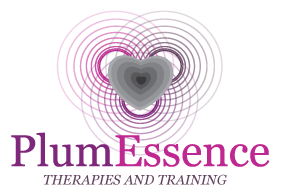This is the 29th in a series of blogs, using answers I provided to pass Mental Health qualifications. This series of blogs are about different types of depression, this being the last of three about Schizophrenia.
As with many mental health subjects, they can all be massive topics with reams of books written on them. I will aim to break schizophrenia down into 3 easy to read blogs, describing schizophrenia and the possible causes, how schizophrenia can affect individuals and the people around them, and how it can be treated and managed.
I strongly believe there is no one-size-fits all approach to managing any kind of mental health condition. It is the main reason why I am not a massive advocate of medication. I prefer to consider natural, healthy ways to recognise and manage any kind of mental ill health, tailoring each treatment and therapy to suit each individual. I do this from experience. It is what helped me which is why I believe it can help others too.
Possible interventions for schizophrenia
Psychotherapy can be used to help the person talk through their feelings and to help them learn coping skills.
CBT – cognitive behavioural therapy – a safe and effective way of providing a copy strategy of specific problems, ie hearing voices, paranoia or anxiety.
Anti-psychotic medication – stated to have less than 50% benefit and to have side effects resulting in people stop taking them. The aim of the medications is to reduce the delusions and hallucinations.
Hospitalisation – this could be enforced under the Mental Health Act if there is a risk of the person causing harm to themselves or others.
ECT – electroconvulsive therapy – could be used as a last resort, with shocks delivered to the brain to try and realign neurotransmitters.
Ways in which the individual with schizophrenia can help manage their own illness.
Accepting help with prescribed medications such as Lithium.
Using talking therapies, mindfulness and meditation and the use of any local support, or online support, groups.
Learn CBT.
Trying to reduce and manage chronic stress.
As gut-health is now being recognised as an important factor in reducing mental illness, trying to establish an easy way of maximising their nutrition and eating well.
Ways in which others can help the individual with schizophrenia to manage their illness
Others can educate themselves and learn all they can about schizophrenia to try and understand as much as possible. This understanding could help them with supporting and guiding the individual, perhaps helping to learn any triggers and be prepared for them.
Others could help by attending support groups and medical appointments with them, asking questions and noting the answers.
Being there to provide the physical support required for things like preparing meals and the individuals personal care, as much as is possible.
Trying to encourage the use of the interventions as mentioned previously but finding the right balance of support without the individual ‘finding’ cause for paranoia and suspicion.
Help with housing agencies and welfare agencies.
Knowing what to do in case of an emergency, if the person self-medicates or self-harms.
Local resources and treatments that would be available to an individual experiencing schizophrenia.
a) Resources
GP’s
Support groups
Psychotherapists and CBT therapists
Social services and community health workers.
b) Treatments
Medications as prescribed by GP’s.
Talking therapies.
Mindfulness and mediation.
CBT.
The next series of blogs will be about dementia.
Tracey of PlumEssence Therapies and Training is a qualified stress management consultant, mental health first aider, clinical hypnotherapist and body work therapist focusing on helping reduce and alleviate concerns connected to both physical and emotional wellbeing. Tracey is also a teacher and trainer, delivering workshops and accredited mental health courses.
Tracey is available for a no-obligation chat to see how we could work together on 01889 808388 or tracey@plumessencetherapies.co.uk
